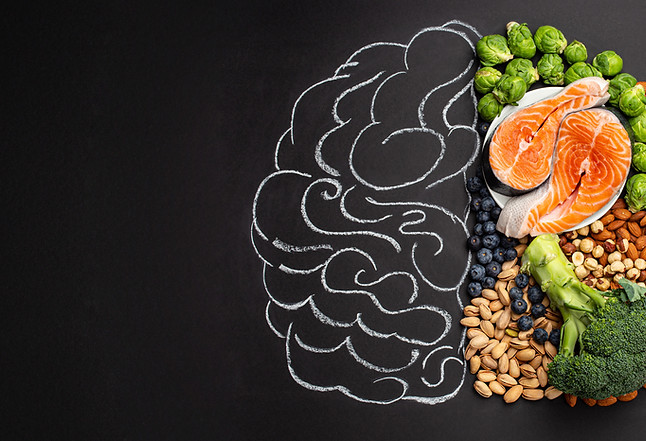Diet & Mental Health

In today’s fast-paced world, conversations about mental health are more important than ever. While therapy, medication, and lifestyle changes like exercise are well-known contributors to emotional well-being, there’s one key factor that often gets overlooked: your diet.
What you eat doesn’t just affect your physical wellbeing it also has a powerful impact on your mental wellbeing. The connection between nutrition and mental health has been backed by growing scientific evidence. A balanced, nutritious diet can help improve mood, reduce anxiety, sharpen focus, and even lower the risk of depression.
Fuel for your brain
The brain is a high-energy organ. It uses up about 20% of the calories you consume, so the quality of those calories matters. Just like a car needs the right fuel to run smoothly, your brain needs nutrients to function properly. Diets rich in whole foods, such as fruits, vegetables, lean proteins, healthy fats, and whole grains provide essential vitamins and minerals that support brain health.
Nutrients like omega-3 fatty acids, B vitamins, magnesium, and zinc help regulate brain chemicals (neurotransmitters) such as serotonin and dopamine, which play key roles in mood and emotional regulation.
Gut and brain connection
The gut and brain are closely linked through what's known as the gut-brain axis. This connection means that the health of your gut can influence how you feel emotionally. A poor diet high in sugar, processed foods, and unhealthy fats can disrupt the balance of bacteria in your gut, leading to inflammation and negatively affecting mood and mental clarity.
On the other hand, a diet rich in fiber, fermented foods (like yogurt, kefir, and sauerkraut), and plant-based ingredients helps support a healthy gut microbiome. A healthy gut can lead to improved mood, less anxiety, and greater mental resilience.
Mood Stability and Blood Sugar Levels
Eating sugary snacks or skipping meals can cause your blood sugar levels to spike and crash, leading to mood swings, irritability, and fatigue. Stable blood sugar supports a more stable mood. Choosing complex carbohydrates (like whole grains, legumes, and vegetables) and pairing them with proteins or healthy fats helps keep your energy and mood steady throughout the day.
Better Eating, Better Thinking
Nutrient-rich foods don’t just affect your mood—they can also improve concentration, memory, and mental clarity. For example, antioxidants found in fruits and vegetables help protect the brain from damage, while omega-3 fatty acids are known to support cognitive function.
When your brain is well-nourished, you're more likely to think clearly, manage stress effectively, and maintain emotional balance.
Summary
Mental health is shaped by many factors, and there’s no one-size-fits-all solution. However, eating a nutritious diet is a simple and powerful way to support your emotional well-being every day.
Making better food choices isn’t about restriction—it’s about nourishment. When you feed your body the right nutrients, you’re also feeding your mind, boosting your mood, and building a stronger foundation for long-term mental health.
